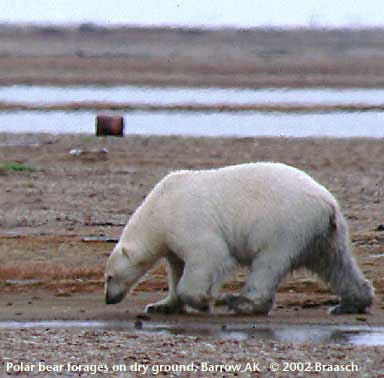
The Maldives are a group of low lying coral islands in the Indian Ocean that rely on tourism to keep their economy going. The islands and the people who live their are likely to be some of the first casualties of global warming - it will create many environmental refugees here. The President of the Maldives is trying to plan for the future. You can read about what he is trying to do here. You can listen to his proposals here.































